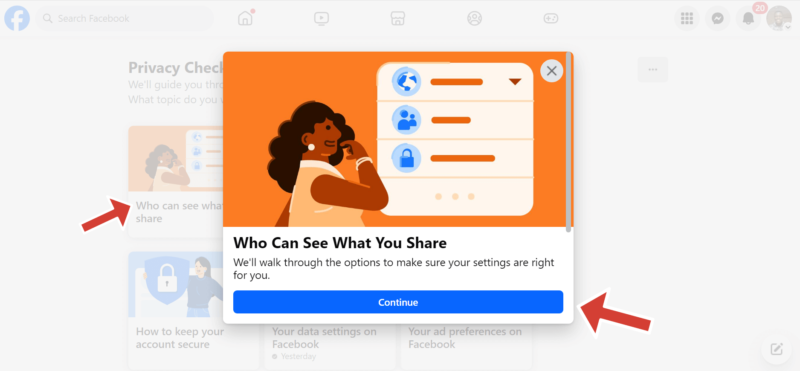Facebook Privacy Settings: How to Make Facebook Private, Lock Your Profile & Make Yourself Unsearchable
Facebook has seen its fair share of privacy related scandals. Luckily, there are things you can do to protect your digital privacy without going as far as deleting your entire account. We've got step-by-step guides on all the different methods for how to make Facebook private, or at least as private as it can be.
Facebook is one of the world’s most popular social media platforms, but it can be a place where stalkers and scammers try to take advantage of you. Whether you want to avoid intruders or just want to keep your details secure, we advise learning how to make Facebook private and combining strong privacy settings with the best Facebook VPN.
We’ll go through step-by-step guides on how to make your timeline, profile, stories and posts private. For example, you can lock your profile, block certain users and make your profile unsearchable. We’ve included annotated images in our guides to make them easy to follow.
-
11/03/2021 Facts checked
Updated guide to reflect changes in the Facebook privacy settings, added information about Facebook removing facial recognition software, and replaced the images.
-
04/23/2024 Facts checked
Added video guide for deleting or deactivating your Facebook account.
-
03/26/2025 Facts checked
We’ve rewritten the article with easy-to-follow and annotated guides for readers on how to adjust Facebook privacy settings.
Where Are Your Facebook Privacy Settings?
Your Facebook privacy settings are available in the privacy center in the settings and privacy tab of your account menu. The privacy center has a privacy checkup tool that helps you decide who can view your profile, posts and stories. You can also block people so they can’t add you as a friend, start conversations, see your posts or tag you.
With the privacy checkup tool, you can decide who can send you friend requests, control who sees you as a suggested friend and toggle whether search engines can link to your profile. You can also review the apps and websites you’ve used to log in to Facebook and remove the ones you no longer want to use.
Your account menu is also where you’ll find your ad preferences, which you can use to stop ads on Facebook — though a VPN with an ad blocker is likely to be more effective.
How to Change Privacy Settings on Facebook Mobile
To change your Facebook privacy settings on mobile devices, you’ll need to navigate to the privacy center. Here’s how to do so on Android and iOS.
On Android: Open the Facebook app on your Android device and tap the hamburger menu. This should be at the top or bottom right, depending on your device. Scroll down and tap “settings and privacy.” Open the privacy center and you’ll find options to change various privacy settings.
On iPhone: Open the Facebook app on your iPhone. Tap the hamburger menu, which should be at the top or bottom right of the screen. Scroll down until you see “settings and privacy” and tap on it. Tap the “privacy center” tab first, then “privacy checkup.” You’ll find options to change your privacy settings.
How to Make Your Facebook Account Private
Facebook lets you decide who can see your profile information, posts and stories. It also gives you the option to block people so they can’t see your timeline or interact with you at all. If you don’t want to delete Facebook altogether, this is the next-best option.
- Log In to Facebook
Open Facebook in a web browser and log in. You’ll need your email or phone number and password to access your Facebook account.
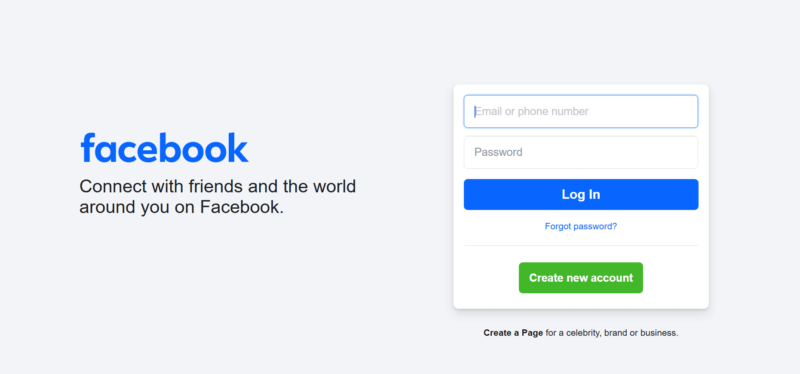
- Click on Your Profile Icon
Click on the profile icon on the right-hand side of your screen. A drop-down menu will open. Scroll down and click “settings and privacy.”
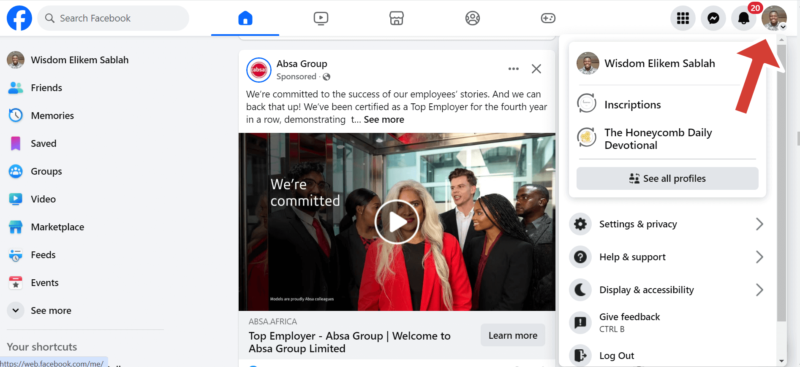
- Click “Privacy Checkup”
Click “privacy checkup” under “settings and privacy.” You can also access it through the privacy center.
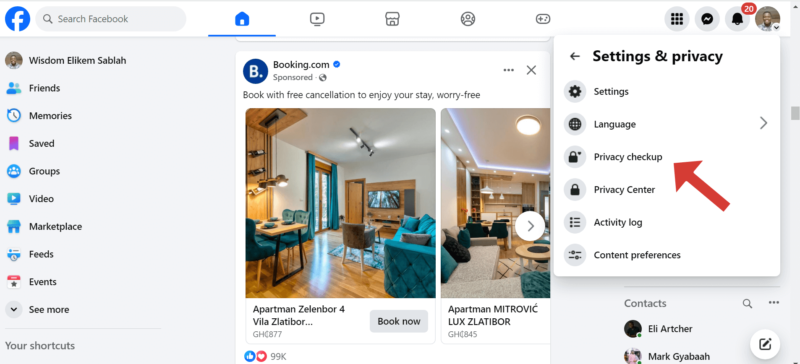
- Review Who Can See Your Profile Information
You can change who can view your personal details, including your phone number, email, birthday, hometown, relationship, current city, education and friends. You can set the views to “only me,” “friends” or “friends except acquaintances,” or create a custom list of viewers. “Public” is also an option, but that leaves you with no privacy protections at all.
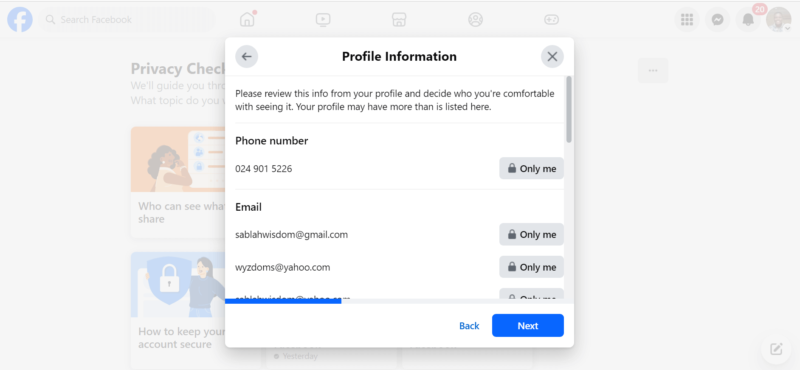
- Review Who Can See Your Profile Information
You can set a default audience for your posts and decide who can see your stories. You can also change the settings on past posts that were set to “public” and make it so only your Facebook friends can see them.
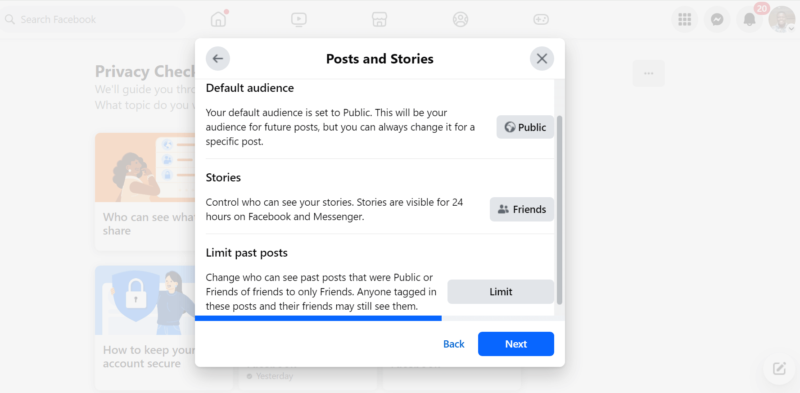
- Block People If You Wish
You can block people from viewing your Facebook posts or interacting with you on the platform.
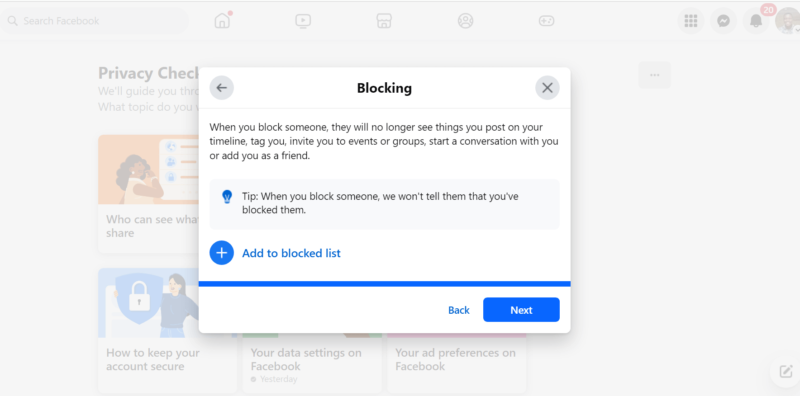
How to Lock Your Facebook Profile
Locking your Facebook profile makes your photos and posts more private. Only your friends will be able to see your past and future posts, stories and cover photos. Note that even after locking your profile, people can still search for you, send you friend requests and see posts you’re tagged in.
This is a great choice that can improve your online privacy and help you build a healthier relationship with social media in general. Here are the steps to follow to lock your Facebook profile.
- Log In to Your Facebook Account and Go to “Settings and Privacy”
Click on your profile picture icon to reveal a drop-down menu. Scroll down until you see “settings and privacy” and click on it.
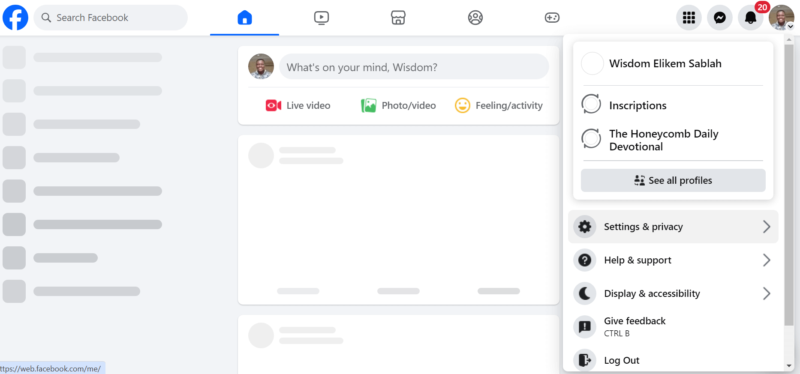
- Scroll to “Audience and Visibility”
Go to the left side of the settings and privacy page and scroll down until you find “audience and visibility.” Click “profile locking.”
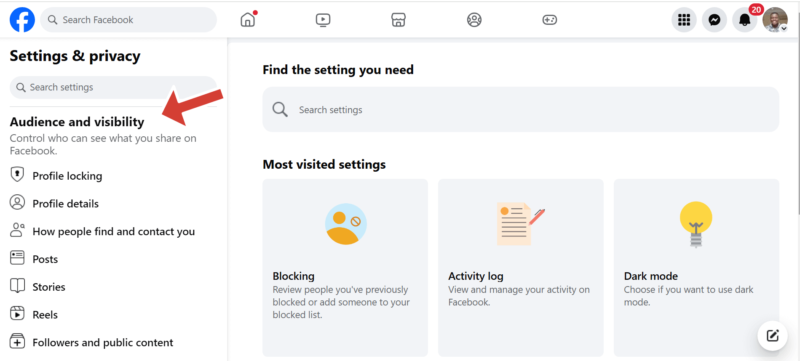
- Lock Your Profile
Click “lock your profile” to lock your Facebook profile. You’ll follow the same process to unlock your profile, but the button will read “unlock your profile.”
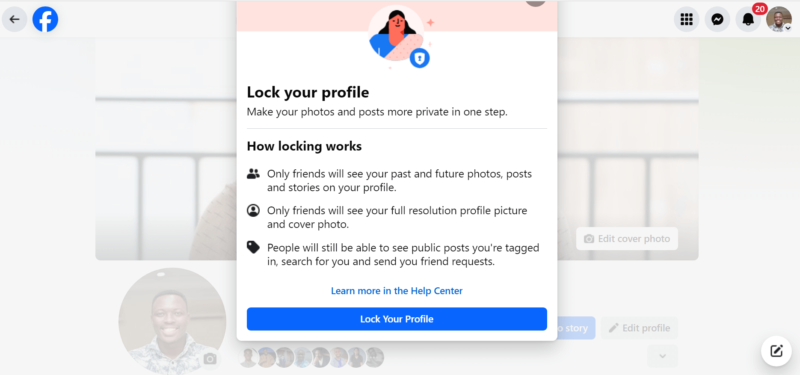
How to Make Your Facebook Unsearchable
The options to make your Facebook unsearchable are under “how do people find me” on the privacy checkup page. Below is a step-by-step guide on how to make your profile invisible to others.
- Log In to Facebook and Click “Settings and Privacy”
Click on the profile icon in the top-right corner of your screen. Afterwards, click “settings and privacy.”
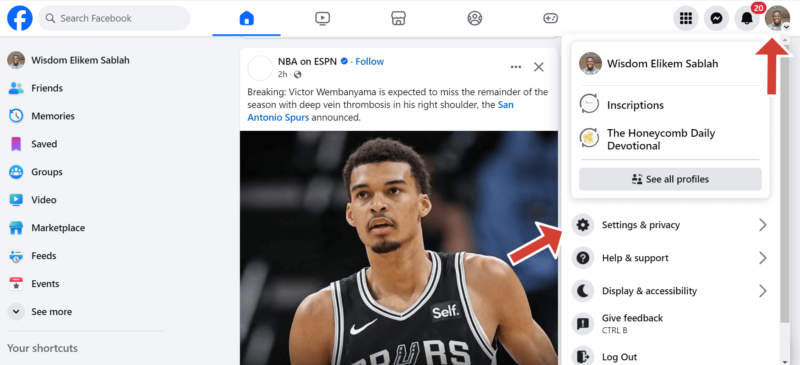
- Click “Privacy Checkup”
Click on the “privacy checkup” tab to open a page where you can make your Facebook account unsearchable.
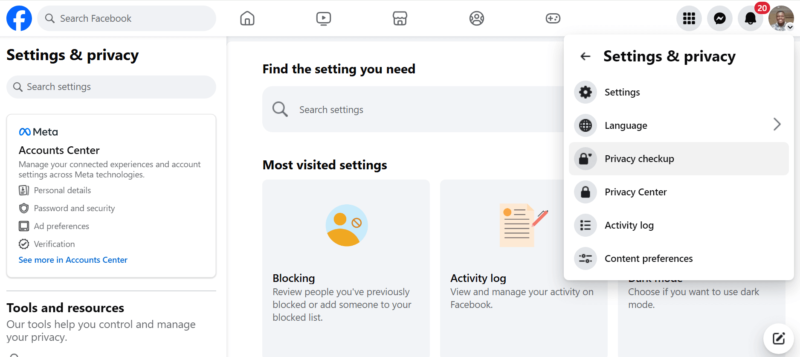
- Change Who Can Find You on Facebook
Click “how people can find you on Facebook.” A pop-up page will appear; click “continue” to proceed.
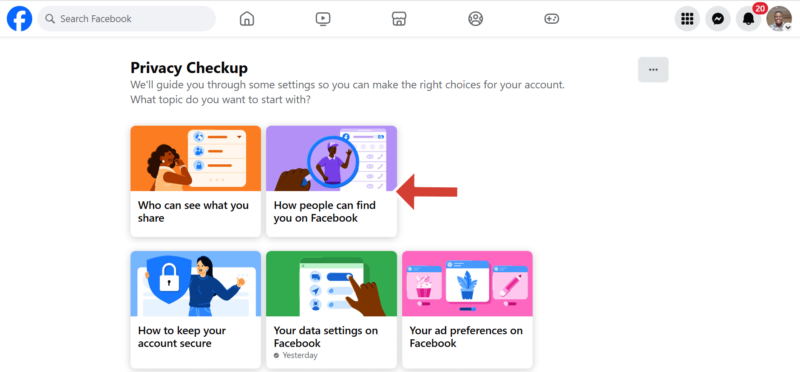
- Review Friend Requests
You can change who can send you friend requests to either everyone or friends of friends.
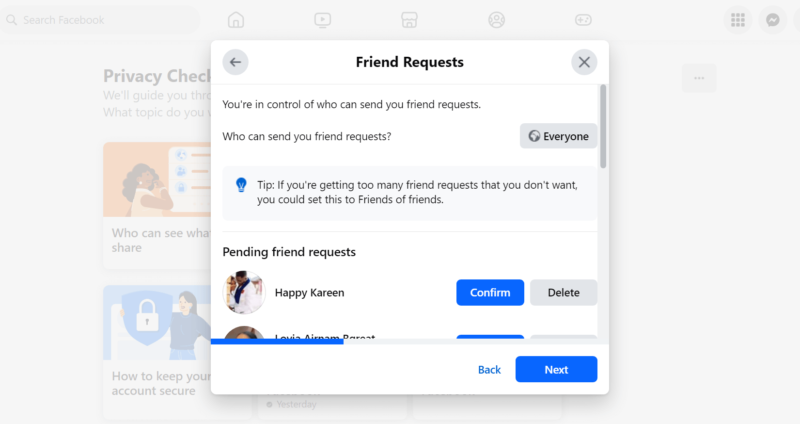
- Review to Whom Facebook Can Suggest Your Profile
You can change the friend suggestion fields in which your Facebook profile appears. You can allow or deny two categories: those with your phone number and those with your email address.
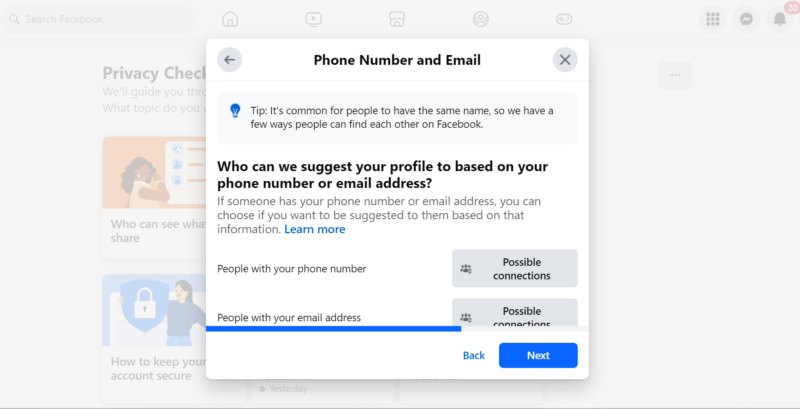
- Adjust How Search Engines Display Your Profile
Toggle off the button in the “search engines” window to stop search engines from linking to your profile outside of Facebook.
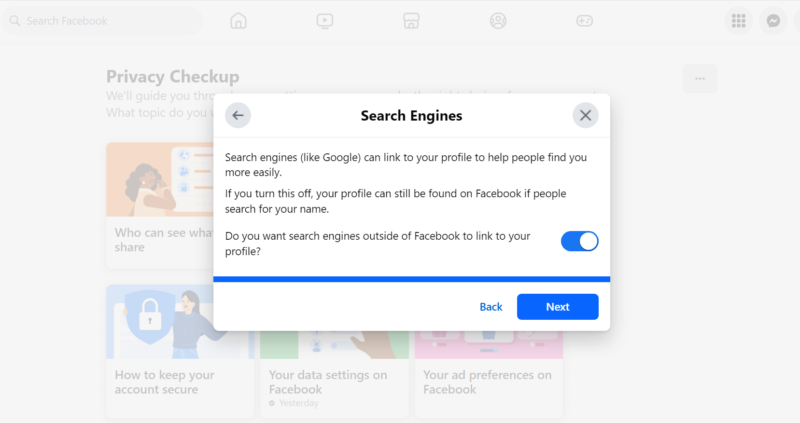
Final Thoughts
Facebook allows you to make your account private. You can restrict people from viewing your profile, posts and stories. You can also make your Facebook profile unsearchable on Facebook and search engines. If you want to avoid someone altogether, you can block that person from viewing your profile or Facebook activity.
What are your reasons for considering making your Facebook more private? Were the steps in this article easy enough to follow? Are there any privacy settings you’d like Facebook to add? Share your thoughts and experiences with us in the comments section below. As always, thanks for reading.
FAQ: How to Make Facebook Private
No, people won’t know that you viewed their Facebook story if you’re not their Facebook friend. If their story privacy is set to “public,” they’ll be able to see the number of viewers but not the specific names.
To make Facebook completely private to non-friends, set all your privacy settings to “only me.”
You can change your Facebook posts to private by setting the audience to “only me.”



